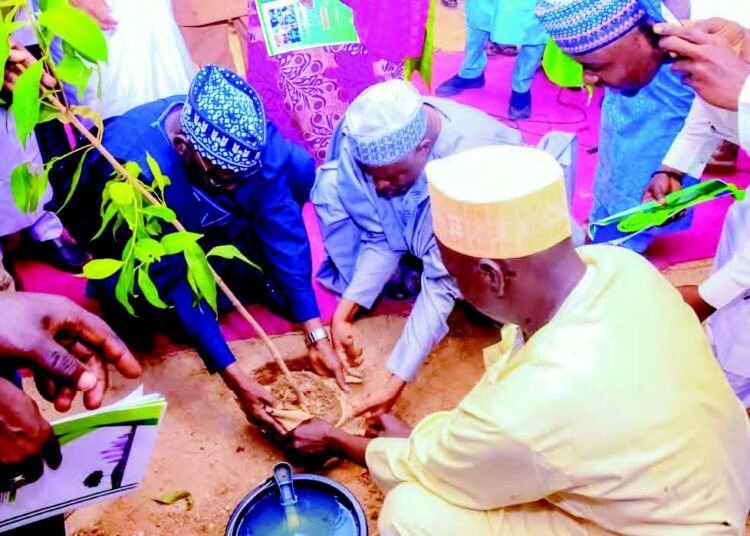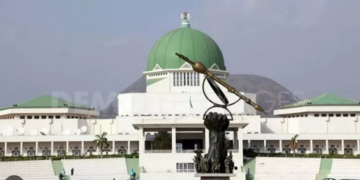The Jigawa State government has officially launched the 2025 Tree Planting Campaign and renewed its pledge to restore over 5,000 hectares of degraded land across the state.
The flag-off ceremony was held at the Pentagon Roundabout, Dutse, where Governor Umar Namadi was represented by the secretary to the state government (SSG), Malam Bala Ibrahim.
The SSG led the symbolic planting of trees and supervised the distribution of seedlings to local government areas.
He noted that the campaign is part of the state’s broader environmental protection strategy, which includes the annual production and distribution of 2.5 million tree seedlings, extensive public sensitisation and promoting collaboration with national and international partners in the project.
Governor Namadi described the exercise as one aspect of his administration’s commitments to the people of Jigawa State, where it pledged to revive and expand ongoing environmental development and protection programmes.
“This is in line with our policy objectives aimed at promoting initiatives that are environmentally friendly, support environmental resilience and sustainability, contribute to the health of our planet, and support the provision of means of sustainable livelihoods for the people,” he said.
Global warming and general environmental degradation, such as floods, desertification, deforestation, and poor waste management, continue to threaten livelihoods across the state.
“These are not distant threats; they are present realities negatively impacting our daily life and livelihoods, our food security, whether at the household level or at a larger scale, and the quality of well-being of our communities across the state. It is our collective responsibility to fight and win the battle against all forms of environmental degradation,” he revealed.
Governor Namadi stated that, to reverse this trend, Jigawa is working through the ACReSAL Project to reclaim degraded land using shelter belts, grazing reserves, and agroforestry techniques.
“Presently, the Jigawa State government, through the ACReSAL Project, is targeting to restore over 5,000 hectares of degraded land across 27 locations in the state through the provision of shelter belts, grazing reserves, and agroforestry. We are already turning the tide through these bold, measurable actions.” Governor Namadi declared.
He also disclosed that five environmental laws have been reviewed and submitted for amendment to the State House of Assembly to strengthen regulatory enforcement.
These include the Forestry, Bush Burning Control, Wild Animals, and Sanitation Laws.
Governor Namadi added that as a step to mitigate flood risks and manage water flow, the state government has purchased and deployed two amphibious hydraulic excavators for the clearance of river channels affected by Typha grass.
“Further, the government is constructing drainage systems in 32 different locations to reclaim eroded and flooded areas. About 130 km of embankments were also made along river tributaries to mitigate flooding, protect farmlands, and build resilience in vulnerable communities.”
However, the governor warned illegal tree fellers and charcoal producers to desist from such wrongful acts or face the wrath of the law.





